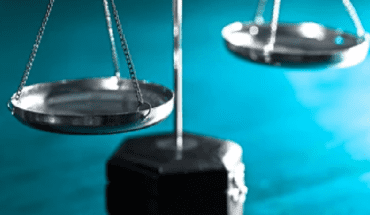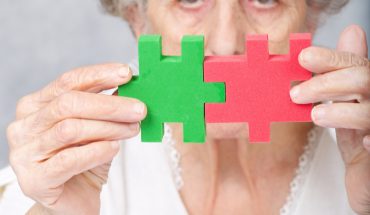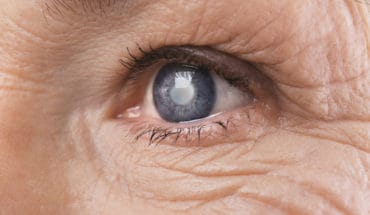Judges and physicians have very different views about appointing a legal guardian for people with dementia: Published in the European Journal of Neurology, a new interdisciplinary study found weaknesses in guardianship assessment for people with dementia.
The findings can be used to improve the consistency of medical and legal assessments, and to ensure equal treatment of those who may need legal guardianship.
Dementia often leads to the appointment of a legal guardian for the individual affected, as their legal capacity diminishes as the disease progresses. Conducted in Finland, a recent study explored how physicians and legal experts perceive the association of the need for legal guardianship with the neuropsychiatric and cognitive symptoms of dementia. Cognitive symptoms of dementia include, e.g., memory impairment and language deficits, while neuropsychiatric symptoms include, e.g., impulsivity and sensitivity to stimuli.
According to the study, the significance attributed to different symptoms varies greatly when assessing the need for legal guardianship. Significant differences of opinion were found both within and between the professional groups, and similar symptoms may even lead to entirely opposing conclusions, the study found.
“The significance attributed to various symptoms is largely based on each professional’s personal views rather than on research evidence. In particular, subjective opinions were prominent in the interview responses of legal experts, which can undermine equality before the law of those who may need legal guardianship,” says Doctoral Researcher Kaisa Näkki of the University of Eastern Finland.
According to the study, legal experts regarded memory impairment and dyscalculia as the most evident symptoms necessitating legal guardianship. However, opinions were divided regarding other symptoms. In particular, impulsivity as a neuropsychiatric symptom strongly divided the opinions of legal experts, as some of them regarded impulsivity as an expression of free will rather than as a symptom of progressive neurodegeneration.
Physicians, on the other hand, regarded neuropsychiatric symptoms, and especially impulsivity, as the most evident symptom necessitating legal guardianship. Often, neuropsychiatric symptoms were found to necessitate legal guardianship already in the early or mild stages of dementia. Physicians were most consistent in their views of memory impairment being a factor that leads to the need for legal guardianship in the moderate stage of dementia. However, physicians’ perceptions of the significance of other symptoms varied greatly.
“Our findings, combined with a lack of previous international research on this topic, indicate that there is an urgent need, both here in Finland and internationally, for a consensus definition of how various symptoms affect legal capacity in dementia. Decisions should not be based on the personal experiences of physicians or judges but on research evidence, which requires systematic data collection. Additionally, there is a need for training for both physicians and legal experts,” says Associate Professor of Clinical Research and Director of Brain Research Unit Eino Solje of the University of Eastern Finland.
“Our study is the first to combine the perceptions of both physicians and legal experts on the need for legal guardianship. The fact that both medicine and law are represented in our team creates an interdisciplinary approach that opens up new avenues for research in these fields,” Professor of Law and Ageing Anna Mäki-Petäjä-Leinonen of the University of Eastern Finland says.
The findings of the study can be used to improve the consistency of medical and legal assessments, and to ensure equal treatment of those who may need legal guardianship.
“This study provides deeper insight into the weaknesses of guardianship assessment. The study is also the first step towards the development of relevant medico-legal criteria as well as towards broader collection of data internationally. Based on international data, it is possible to formulate uniform guidelines on the impact of cognitive and neuropsychiatric symptoms on legal capacity, and on the need for legal guardianship,” Näkki concludes.
Näkki K, Mäki-Petäjä-Leinonen A, Ervasti K, et al. Diverging medical and legal perceptions of the need for legal guardianship in people with dementia: A qualitative study. Eur J Neurol. 2024;00:e16334 https://doi.org/10.1111/ene.16334 10.5.2024
- Gut microbiome could delay onset of type 1 diabetes - 3rd April 2025
- The da Vinci 5 Robot Is Set To Transform Bariatric Care: - 31st March 2025
- Beyond money: the hidden drivers fuelling child food insecurity - 31st March 2025






